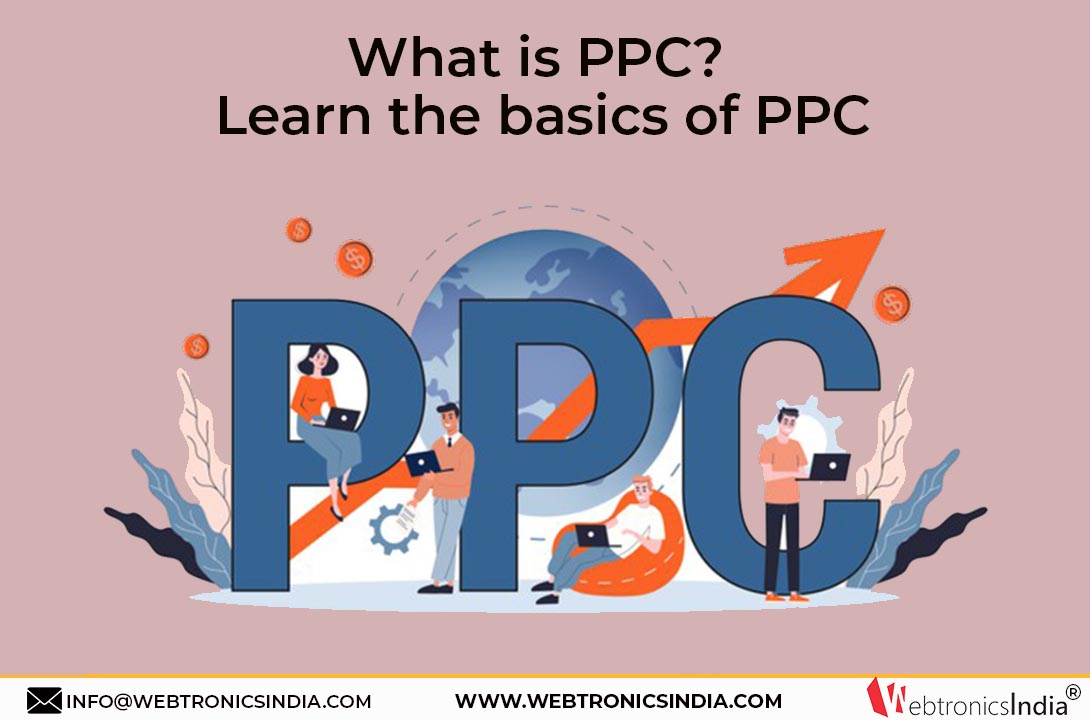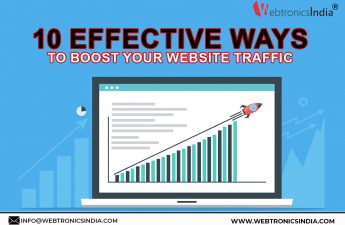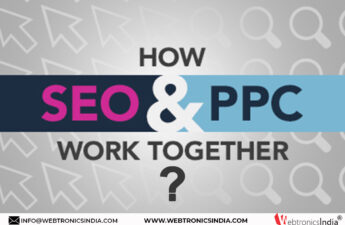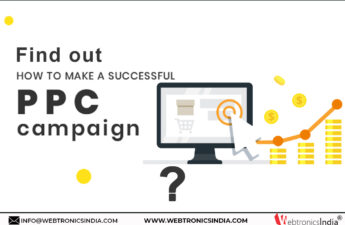PPC or pay-per-click is a type of internet marketing in which the advertisers pay money every time a user clicks on their ad. This model is exactly the opposite of SEO (Search Engine Optimization) in which the website owners need to earn the visits via organic search with no money involved.
Search engine advertising is a form of PPC. It allows the advertisers to do bidding for ad placement in sponsored links of search engines like Google when a user searches for a keyword related to their brand or business. For example, if you are an advertiser and bid on the keyword ‘Running Shoes’, the ad might show up on top of the search engine result page.
It is important to note that every time a user clicks your ad and goes to your website landing page, you have to pay a small fee to the search engine. If your PPC model is accurate, the fee paid to search engines is way too less than the profit generated. For example, if you are paying Rs 5 for a click on your ad, but it gives a sale of Rs 500 on your conversion page, you have made a big profit.
An effective PPC campaign requires picking the right keywords, organizing these keywords into well-ordered campaigns and ad groups, and creating landing pages that are optimized for conversions. Therefore, if a business decides to go for a PPC campaign, it is essential to do it right to generate maximum returns for the business.
What is Google Ads?
Google Ads is one of the most famous advertising systems in the world. It allows the brands to create ads that appear on Google’s search result page and the other properties of Google. Google ads work on a PPC model in which the advertisers bid on certain keywords and pay for each click on their ads.
How does Adwords Auction work?
- Advertisers shortlist the keywords they want to bid on, decide how much money they want to spend, and create groupings of these keywords that are paired with ads.
- Whenever a user searches a query on Google, Google looks at the advertiser’s AdWords pool and decides if there will be an auction.
- If one or more advertisers are bidding on the keywords that Google deems fit for the user’s query, an auction is triggered.
- Google enters the keywords from your account it finds most relevant into the auction with the maximum bid that you have decided and the related ad.
- Once your ad enters the auction, Google takes 2 factors into account to determine the ranking of your ad – The quality score if ads and your maximum CPC bid.
AD Rank = CPC Bid * Quality Score where:
- CPC Bid – The maximum bid you are willing to pay for your keyword
- Quality Score – It is a metric to decide how useful and relevant your ad is to the user.
- Being an advertiser, you pay the minimum amount you can pay for the position you win if the user clicks on your ad.
- The Adwords Auction runs a billion times every month. The results are delivered such that:
- Advertisers are able to reach their target audience at the lowest price possible.
- The users get what they are looking for.
- Google earns billions of dollars in revenue.
Must Read – Best Google Ads Hacks That’ll Double Your Conversion Rate
Important Adwords Facts to Remember
-
Alternative methods of Bidding-
Google allows two more bidding methods other than CPC – CPM, and CPA
- CPA Bid – When you use a conversion optimizer and bid for CPA, Google determines your max CPC bids based on your historical conversion data, and attempts to hit either the max or average CPC you have set.
- CPM Bid – If a CPM bid enters an auction with a CPM and CPC bids, eCPM is used to determine the bid. eCPM is the effective cost per 1000 impressions for both the CPM bid and CPC bid.
-
The AD Auction and the Display Network
The AD auction also works on the same lines but is triggered by ‘places’ or ‘placements’ on Google Adsense where the publishers give advertising space to Adwords advertisers. The core ranking components are almost the same here with differences like:
- The bids will be set at the ad group level and not the keyword level.
- The relevance is decided by the placement and not the query.
- You can also specify CPM bids ( impressions ) which then compete with both CPC bids and CPM bids.
Using Google Ads to conduct PPC marketing is valuable as Google is the most popular search engine, gets a huge amount of traffic, and delivers the most clicks and impressions for your ads. The Keywords and match types selected by you will decide how often your ad will appear.
Keyword Research for PPC Campaign
Keyword Research is time-consuming but is essential for every PPC campaign. If you do not spend enough time on deciding the relevant keywords for your campaign, you will miss out on hundreds of long-tail, valuable, highly relevant, and low-cost keywords for your campaign. Ensure that your PPC keyword list is expansive, exhaustive, and covers everything the user is looking for.
Managing Your PPC Campaign
Once you have created your PPC campaign, it is essential to manage and update it regularly to ensure its effectiveness. As a PPC analyst, you must monitor your PPC campaign on a regular basis and make the following adjustments as and when needed:
- Include PPC Keywords – Expand the reach of your campaign by adding the keywords that are relevant to your brand.
- Include Negative Keywords – Add negative keywords to improve the relevancy of your campaign and avoid wasting funds.
- Split Ad Groups – Split up the ad groups to improve the CTR ( Click-through-rate) and Quality Score of your ads.
- Analyze Costly PPC Keywords – Review the under-performing and expensive keywords and remove them if needed.
- Improve Landing Pages – Improve your landing page by placing Call-to-action at the right place and giving exactly the same information the user is looking for.
Summing Up
Now that you have a basic idea of a PPC model and how to run it for a successful PPC campaign, you can use it to bring the target audience to your website. A good PPC campaign provides instant traffic, leads to positive ROI, and offers multi-layered targeted options.
If your PPC campaign is relevant and targeting the right keywords, the search engines will reward you by charging less for ad clicks.




